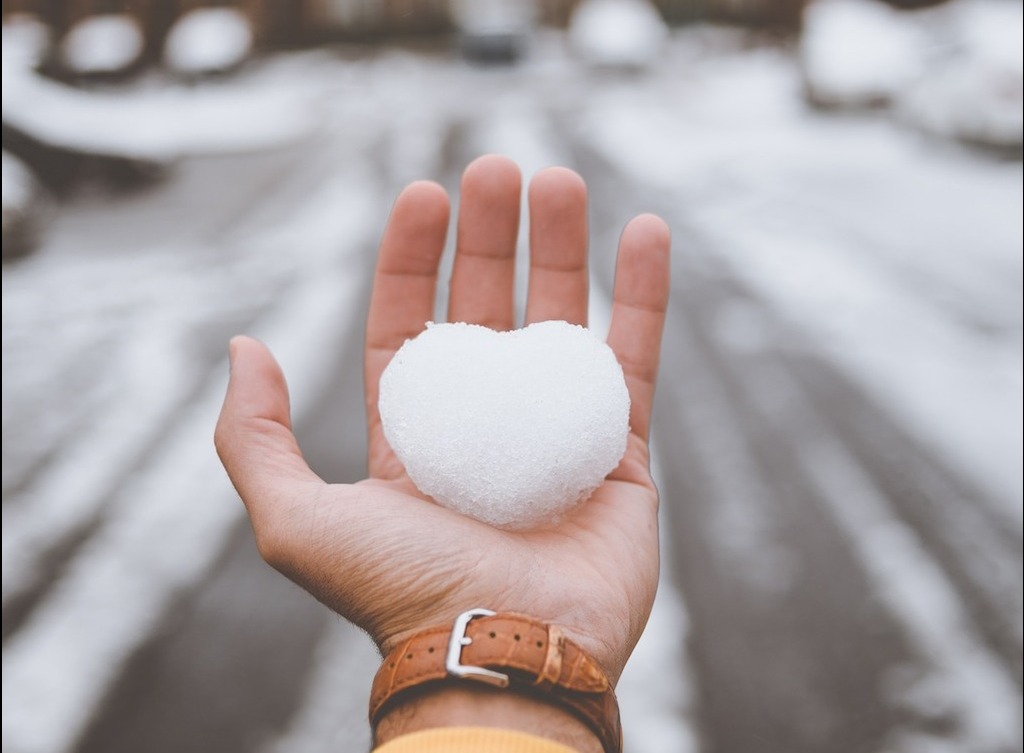Kindness might seem frivolous when you’ve got household chores to tackle, the stresses of daily life weighing you down, and your own mental health to worry about.
But, the science shows, kind acts aren’t just good for recipients. Anyone who performs a random act of kindness also stands to benefit.
In a Spanish study where colleagues were assigned to be either givers or receivers over the course of a month, both groups became happier during and after the study. The givers, in particular, reported being less depressed and more satisfied with their lives two months later.
Whether it’s reaching out to an old friend, greeting the mail carrier, helping an elderly neighbor, or something else, random acts of kindness go a long way to making the world a kinder place for everyone. Here’s some surprising facts behind the positive impacts of kindness.
We underestimate how well our gestures will be received.
Before being directed to give away hot chocolate at a Chicago ice rink, people were asked to guess how “big” the act would seem to the recipients. Following the giveaway, those recipients were quizzed about how this kind behavior actually made them feel.
What the researchers found was surprising: the people doing the giving consistently underestimated how their actions would be received. In other words, the benefits of kindness to the recipients were much larger than the givers were anticipating.
Another component of the study used cupcakes instead of hot chocolate. Again, the results showed the givers underestimating how different people would receive their kindness. And the cupcake portion of the research used a control group: people who got a cupcake from the researchers. Even though both that group and the kindness recipients ended up with a cupcake, the latter group was happier.
“Recipients consider the gesture to be significantly more meaningful because they are also thinking about the fact that someone did something nice for them,” one of the study authors told the New York Times.
We overestimate the awkwardness of an act of random kindness.
We tend not to think about how warmly our kind behavior will be received because we see acts of kindness from our own perspective as givers. This point of view also leads us to overestimate how awkward it will be to approach a stranger with a kind gesture.
In a British study, more than 100,000 people were asked why they don’t undertake kind acts more frequently. The most common response: fear that the gesture would be misunderstood, viewed as having ulterior motives, or interpreted as insulting.
But this social anxiety is misplaced. Fewer than 1 percent of the people surveyed said they would be embarrassed by someone doing something kind for them.
In actual fact, one act can completely turn someone’s day around.
“If you give someone a cupcake because you want to make them happy, you don’t realize that that’s really going to matter to them — that that might be the best thing that happened to them that day,” researcher Amit Kumar of the cupcake-and-hot-chocolate study says.
Small actions can have a multiplier effect.
In another part of Kumar and his colleagues’ research, they split participants into two groups: one that received a gift from the research team, and one that got a gift from another study participant. The people in both groups were then given $100 and told to divide it between themselves and another person in the study.
Turns out, kindness has a downstream effect. The people who received gifts from other participants were more generous than those in the control group who had been given a gift by the researchers. The kindness recipients gave away $48.02 on average, compared to $41.20 for the controls.
This finding — echoing what the research team learned in the cupcake giveaway — shows how well people respond to intentional acts. The reason for this is that we adapt quickly to our immediate circumstances. In the case of the $100 and the cupcakes, receiving gifts from the research team seemed “normal” because they had agreed to participate in the study.
What really make a mark were acts that required the giver to go out of their way and do something over and above what would be typical.
These exceptional acts, in turn, can make us want to be exceptional too.
“Receivers of a prosocial act can pay it forward,” Kumar said in a University of Texas blog post. “Kindness can actually spread.”
Kindness inspiration
Looking to make the world a little bit kinder and effect some positive change? As all of this research shows, a little effort goes a long way. Here are some great ideas for good things you can start doing in your community.
Offer help.
See someone struggling with plastic bags from the grocery store, pulling weeds in their vegetable garden, or having a hard time with yard work? Offer to give them a hand. They might not need it, but your small act of kindness won’t go unnoticed. Odds are, they’ll remember your gesture, and you might even make a new friend.
Give a compliment or write an encouraging note.
“The happy phrasing of a compliment is one of the rarest of human gifts and the happy delivery of it another,” Mark Twain said. Compliments might not be commonplace in our culture, but a positive comment is an easy way to show someone you recognize that they’re doing a good job. They fulfill one of our most innate needs: to be recognized and appreciated.
Spend money on someone.
On average, people spend 10 times more on themselves than on other people. But increasing your “prosocial” spending just slightly can have a big impact. “As little as $5 a day may be sufficient to produce nontrivial gains in happiness on a given day,” one study says. What might this mean? Pay for the the person behind you in line at the coffee shop. Give a gift card or extra tip to a retail worker. Add change to a parking meter that’s running down. Even these small actions can make you happier.
Just talk.
Particularly for those who are homebound, the world can seem very small. When you offer your extra time and attention — two of the most precious gifts you can provide — to an elderly neighbour, you communicate that you see and respect them. People have amazing stories to tell if you only listen.
Consider what you’re good at.
A great tip from the Times piece on kindness: think about the skills and talents you already have and consider how they can be utilized to serve others. It could even be something you don’t think of as a generosity opportunity, like giving away unused frequent flyer miles you racked up with a credit card, or using your physical health to run errands for less-abled people.
Photo by Clay Banks on Unsplash.


